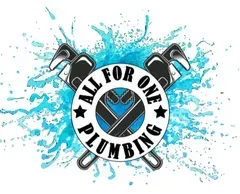Maximizing Comfort and Efficiency: A Guide to Residential Plumbing Solutions
In the realm of homeownership, few systems are as integral to daily comfort and convenience as residential plumbing. From morning showers to cooking meals and everything in between, a well-maintained plumbing system ensures seamless functionality and peace of mind. In this guide, we'll explore the importance of residential plumbing and provide insights into optimizing its efficiency and reliability.
Understanding the Importance of Residential Plumbing
Residential plumbing encompasses a network of pipes, fixtures, and appliances designed to facilitate the distribution of clean water and the disposal of wastewater throughout a home. From kitchen sinks to toilets, showers, and water heaters, each component plays a crucial role in maintaining a hygienic and comfortable living environment.
Key Components of Residential Plumbing
- Pipes: The backbone of any plumbing system, pipes transport water to various fixtures and appliances within the home. Common pipe materials include copper, PVC, and PEX, each offering unique advantages in terms of durability and cost-effectiveness.
- Fixtures: From faucets and showerheads to toilets and sinks, fixtures are essential for accessing water for various household activities. Choosing high-quality fixtures not only enhances functionality but also contributes to water efficiency and aesthetic appeal.
- Water Heaters: A reliable water heater is essential for ensuring a steady supply of hot water for bathing, cooking, and cleaning. Whether you opt for a traditional tank-style heater or a tankless model, regular maintenance is key to maximizing efficiency and longevity.
- Drainage Systems: Proper drainage is essential for effectively removing wastewater from sinks, showers, and toilets. Regular drain cleaning and inspections help prevent clogs and backups, preserving the integrity of your plumbing system.
Optimizing Residential Plumbing Efficiency
- Routine Maintenance: Schedule regular inspections and maintenance checks to identify and address potential plumbing issues before they escalate into costly repairs.
- Water Conservation: Install water-efficient fixtures and appliances, such as low-flow toilets and aerated faucets, to minimize water consumption and reduce utility costs.
- Leak Detection: Keep an eye out for signs of water leaks, such as damp spots, mold growth, or unexplained increases in water bills. Promptly address any leaks to prevent water damage and conserve water.
- Professional Assistance: When faced with complex plumbing issues or installations, enlist the expertise of licensed plumbing professionals. They have the skills and tools necessary to tackle even the most challenging projects safely and efficiently.
Conclusion
Residential plumbing is a vital aspect of modern living, providing essential services that contribute to comfort, hygiene, and overall well-being. By understanding the key components of residential plumbing and implementing proactive maintenance measures, homeowners can ensure optimal performance and efficiency for years to come.
For professional residential plumbing services tailored to your needs, trust the experts at All For One Plumbing. Contact us today at [phone number] or [email] to schedule a consultation. Let us help you achieve a plumbing system that meets your household's needs while maximizing comfort and efficiency.
